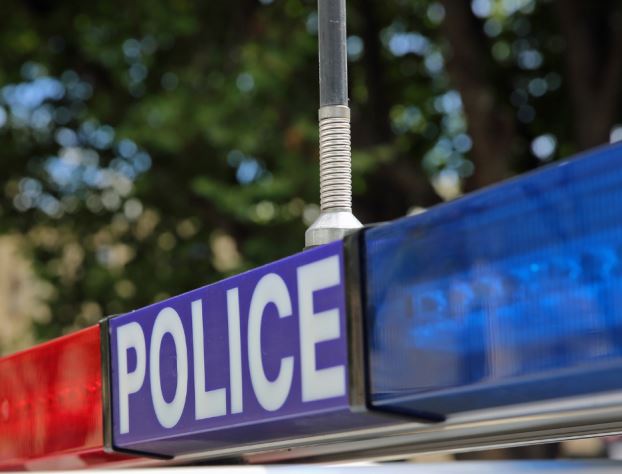
An Overview of the Florida Motor Vehicle Repair Act
In Florida, every car owner will at one point or another, need to have their car serviced or repaired. To avoid some of the most common mistakes and pitfalls, it is important to understand your rights under the Florida Motor Vehicle Repair Act (FMVRA). The Florida Motor Vehicle Repair Act applies to all repair shops except those which repair government vehicles, those for hire, those for use in agriculture, and those which are to be auctioned. The act primarily covers three main areas: repair shop registration requirements, repair estimate requirements and disclosures, and unlawful acts and practices along with remedies to obtain relief.
Repair Shop Registration Requirements: The FMVRA specifically mandates that all repair shops formally register with the state of Florida. In this regard, each motor vehicle repair shop engaged or attempting to engage in the business of motor vehicle repair work must register with the Department of Agriculture and Consumer Services prior to doing business in Florida. The application must be on a form provided by the Department and include at least certain specified information.
Motor vehicle repair shops maintaining more than one place of business may file a single application biennially, which, along with the other information required, clearly indicates the location of and the individual in charge of each facility or in the case of a mobile motor vehicle repair shop, the home address of the owner, if different from the business address. Each registration must be renewed biennially on or before the expiration date of the current registration. The Department must issue to each applicant a registration certificate in the form and size as prescribed by the Department or in the case of an applicant with more than one place of business, the Department must issue a registration certificate for each place of business. This registration requirement protects consumers because it requires shops to include their registration number in any ads, listings, or directories and post their registration number at their place of business which allows consumers to easily look up the repair shop to see if any complaints have been made.
Written Repair Estimates: When any customer requests a motor vehicle repair shop to perform repair work on a motor vehicle, the cost of which repair work will exceed $100 to the customer, the shop must prepare a written repair estimate, which is a form setting forth the estimated cost of repair work, including diagnostic work, before performing any diagnostic work or repair. The written repair estimate must also include specified items. The estimate may be prepared by a third party, such as the owner’s insurance company. The failure to give the written estimate in advance of the repairs may result in the consumer retaining the benefits of the repairs and also recovering the amount of the repair bill. If the cost of repair work will exceed $100, the shop must present to the customer a written notice conspicuously disclosing, in a separate, blocked section, only the statutory statement, as specified. Except as otherwise provided, a copy of the written repair estimate and the disclosure statement must be given to the customer before repair work is begun. The disclosure statement may be provided on the same form as the written repair estimate. The customer may waive the right to the written estimate, either on the disclosure statement, or by dropping the motor vehicle off when the shop is closed.
To recap, a repair estimate must include the following information:
• The shop’s name, address and telephone number.
• The customer’s name, address and telephone number.
• Date and time of estimate.
• The year, make, model, odometer reading and license tag number of the vehicle.
• Proposed work completion date.
• Description of customer’s problem or request.
• Labor charges based on a flat rate, hourly rate, or both.
• Estimated cost and charges for repair.
• Charges for shop supplies or for hazardous or other waste removal.
• Charges for making an estimate and the basis for the charge.
• The customer’s intended method of payment.
• Name and telephone number of any alternate person the customer would allow to authorize repairs.
• Terms of the parts and service guarantee.
• Notation if customer wants replaced parts returned.
• Charge for daily storage. Shops notify customers after repair work is completed; customers will then have three working days to pick up the vehicle before storage fees may be charged.
• Disclosure statement.
Repair Shops Cannot Force You to Waive Your Rights to an Estimate
A motor vehicle repair shop must not charge for making a repair price estimate unless, prior to making the price estimate, the shop: (1) discloses to the customer the amount of the charge or, if the amount cannot be determined, the basis on which the charge will be calculated; and (2) obtains authorization on the written repair estimate to prepare an estimate; a motor vehicle repair shop must not impose or threaten to impose any such charge which is clearly excessive in relation to the work involved in making the price estimate. It is unlawful for any motor vehicle repair shop to require that any person waive his or her rights provided by statute as a precondition to the repair of his or her vehicle by the shop.
What Happens if There are Charges in Excess of Your Estimate?
If the written repair estimate contains only an estimate for diagnostic work necessary to estimate the cost of repair and such diagnostic work has been completed and the shop determines that the actual cost of repairs will exceed the written estimate by more than $10 or 10%, whichever is greater, but no more than $50, or there is an implied partial waiver for diagnostic work, and such diagnostic work has been completed, the customer must be promptly notified of the estimated cost of any additional repair work. After being notified, the customer has to orally or in writing, authorize, modify, or cancel the order for repair. If a customer cancels the order for repair after being advised that a repair which he or she has authorized cannot be accomplished within the previously authorized estimate, the shop must expeditiously reassemble the motor vehicle in a condition reasonably similar to the condition in which it was received unless: (1) the customer waives reassembly; or (2) the reassembled vehicle would be unsafe. It is unlawful for a motor vehicle repair shop to charge more than the written estimate plus $10 or 10%, whichever is greater, but not to exceed $50, unless the motor vehicle repair shop has obtained authorization to exceed the written estimate. It is also unlawful for any motor vehicle repair shop to fail to return any customer’s motor vehicle because the customer has refused to pay for unauthorized repairs or because the customer has refused to pay for repair charges in excess of the final estimate in violation of statute.
After Work is Complete, Make Sure the Repair Shop Provides You with an Invoice
A motor vehicle repair shop must provide each customer, upon completion of any repair, with a legible copy of the invoice. Each motor vehicle repair shop must also maintain repair records which include written repair estimates and repair invoices. A customer’s records must be available to the customer for inspection and copying for a period of at least 12 months. The invoice must include the following items: date, odometer reading, description of work, labor, parts, and other costs, condition of parts, guarantee, if any, and registration number from FDAC identifying the shop.
Additional Tips for Consumers:
• Keep all estimates, invoices, and other records that you are given by the repair shop, even if there is no charge. (Should your car appear to be incorrectly repaired or require additional or repeat repair, you will need records of prior repair work.)
• The invoice should state what repair work is guaranteed. You need this information until the guarantee period runs out.
• Take notes on all telephone calls or other conversations when a shop tells you additional parts or labor are needed, and the work may cost more than the estimate. Write down the date and time, the name of the person you talked to, and whether you authorize the additional cost. If you authorize it, this becomes a “final estimate.”
• Go with your car to the shop whenever possible, so that none of your rights are waived.
After any type of crash, you should consider talking to a car accident lawyer to learn what your rights and obligations are under the law. Let the personal injury attorneys at Suarez & Montero Car Accident Lawyers review the circumstances of your case and discuss your legal options. Our attorneys are ready to provide proven legal representation in pursuing your claim and stand ready to protect your rights.
Contact us today at 786 Lawyers for a free consultation!





